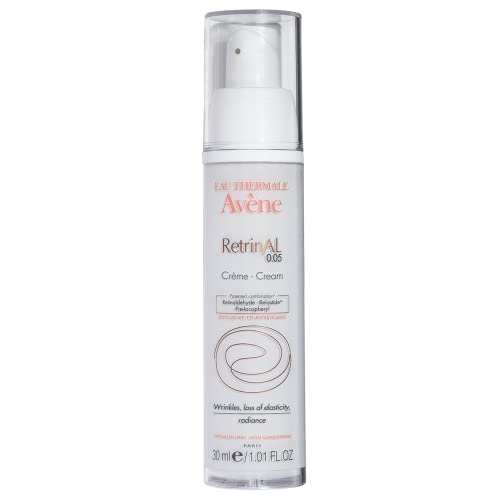Retinol, a derivative of vitamin A, is a popular treatment for acne and is a common ingredient in many anti-aging skincare products. However, seborrheic dermatitis sufferers have sensitive skin and need to be more careful when choosing what to put on their skin.
Retinol (and its derivatives) can be harsh on the skin and can trigger an SD flare. People with SD who use retinol usually use gentler formulations and apply it in very small amounts to avoid potential side effects. Remember to use retinol products at night as using it in the day will make your skin more sensitive to the damaging effects of sunlight.
Let’s take a deep dive:
Can retinol help treat seborrheic dermatitis?
Never say never. It’s possible to use retinol formulations when you have seborrheic dermatitis. Retinol has been shown to help with skin redness. However, it doesn’t contain any active ingredients that directly reduce Malassezia load on your skin. Nor does it have any anti-inflammatory properties to help soothe your skin and regulate your inflammatory response.
In other words, retinol does not treat seborrheic dermatitis. If you are using retinol for other reasons, like rosacea or acne, be extremely careful. Retinol, tretinoin and other Vitamin A derivatives can be harsh on the skin, aggravating seborrheic dermatitis.
You can try Retinol 0.5% in Squalane by The Ordinary. It’s gentler than most other formulations. Even then, start slow and don’t use it every day.
Further reading: Is squalane oil good for seborrheic dermatitis?
Does retinol aggravate seborrheic dermatitis?
Unfortunately, retinol can aggravate seborrheic dermatitis. Retinol is just one of those ingredients that is irritative, even for normal skin. People with seborrheic dermatitis almost always have sensitive skin that can get triggered by harsh chemicals. If you are experiencing worsening SD symptoms, it’s best to avoid using products that contain this ingredient.
Don’t buy based on reviews by people who don’t have seborrheic dermatitis. Many women tolerate the irritative effects of retinol to enjoy its anti-aging properties. If you want to use retinol products, choose the gentler formulations.
Even though La Roche-Posay retinol cream is an awesome anti-aging cream, it stings like crazy when I apply it on my face. Sometimes it even leaves me with angry red SD patches.
Try a gentle formulation with multiple other soothing ingredients like the Avene Retrinal 0.05 instead:
Further reading: Is Avene good for seborrheic dermatitis?
Is tretinoin safe for seborrheic dermatitis?
Tretinoin (Retin-A) is referenced as being a hundred times stronger than retinol. It is prescription only whereas retinol products can be purchased over-the-counter. Retinol don’t cause any danger when used by someone with seborrheic dermatitis. However, it can cause facial stinging, especially if your skin is still inflamed from an SD flare. It can also aggravate your SD or even trigger it in some people.
Tretinoin, on the other hand, is way too strong and harsh for sensitive seborrheic dermatitis skin. I wouldn’t even dare try it. It’s not worth the pain.
If you do choose to try it, make sure to start out slowly and watch for any adverse reactions. Remember not to use tretinoin, or other retinol products in the day as it can make your skin more sensitive to the sun.
ML Delicate Retinol Moisturizer is another gentle cream to try. It contains encapsulated retinol which is supposed to be less irritative:
Can you use retinol on your eyes if you have seborrheic dermatitis?
Seborrheic dermatitis often spares the eye area as there are smaller pores and less sebum production around the eyes. However, SD can affect the eyelids in some people. If you don’t have a rash on your eyelids, you can use retinol eye creams safely.
If your eyelids are affected by SD, don’t use retinol eye creams as it will sting and probably aggravate your eyelid rash. If you find that you have itchy eyes or a rash around your eyes after using eye creams with retinol, discontinue use immediately.
Tree to Tub also has a night eye cream that contains retinol, ginseng and other soothing ingredients:
To wrap up
Some retinol products are safe to use, even when you have seborrheic dermatitis. However, avoid them when you are having an active SD flare. When trying out a new cream with retinol, make sure you try it on a small area first.
 Check it out on Amazon
Check it out on Amazon Check it out on Amazon
Check it out on Amazon Check it out on Amazon
Check it out on Amazon Check it out on Amazon
Check it out on Amazon Check it out on Amazon
Check it out on Amazon
Pingback: The 5 Best Face Moisturizers For Seborrheic Dermatitis
Pingback: Does sunlight help seborrheic dermatitis?
Pingback: seborrheic dermatitis acne
Pingback: vitamin A seborrheic dermatitis
Pingback: Dr Lewinn's Ultra R4 Collagen Surge Plumping Gel Review
Pingback: is seborrheic dermatitis itchy
Pingback: Bakuchiol: A non-irritative natural alternative to retinol
Pingback: Is Retinol Good For Seb Derm? (03/03/2024)